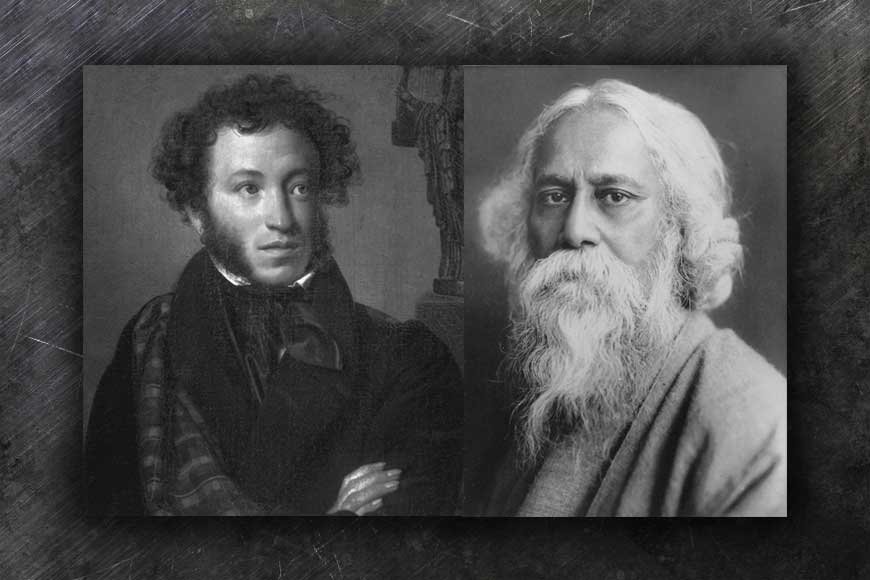This book fair, celebrate the connect between Tagore and Russian poet Pushkin

As Kolkata International Book Fair celebrates theme country Russia and its rich treasure trove of literature, one cannot ignore the connect that erstwhile USSR had with India. Not just politically, but also through great poets, authors and Nobel Laureates. One such connect was between Rabindranath Tagore and well-known Russian poet Alexander Pushkin. Russians have not only been keen over decades to understand Tagore through translations, but also often compared our bard with Pushkin.
A park in Leningradsky even has a tall statue of Tagore. Several Russian universities have Russian students who pursue their PhD on Tagore and his creations. ‘Tagore’s Letters From Russia’ had introduced Indians to the Soviet Land, decades back, where the poet describes Russia as a land of snow and forests, inhabited by courageous people. He was deeply impressed by the socio-political experiment of Soviet Union, though he was critical of some aspects of it. Tagore had deep respect for Leo Tolstoy and called him the ‘teacher of mankind’ for his constant voice against violence.
Incidentally, many Russians find a lot of similarity between Pushkin and Tagore, as these two poets heralded a literary renaissance in their respective countries. After elegant preludes, modern Russian literature began as a full symphony with Alexander Sergeyvich Pushkin. He was born when the French revolutionary army swept through Europe, sowing the seeds of future revolts leading to Decembrist Revolt in Russia. Pushkin’s poems inspired the leaders of the uprising. Similarly, Tagore was born when India was under British rule.
Tagore, like Pushkin, enthusiastically embraced new ideas from the West. Nevertheless, both poets drew inspiration from their own people and from their historical and cultural traditions. Pushkin composed epic poems on Russian history such as Boris Godunov, Bronze Horseman and Tagore captured heroic deeds of the past in his anthology ‘Katha o Kahini.’ Not just that, they were both artists. Pushkin’s sketches and drawings, caricatures of himself and others are still displayed in his house in St. Petersburg. Sometimes, he drew them on the margins of manuscripts. Tagore began by doodling, which formed patterns on his manuscripts from which portraits emerged.
Though both were born into rich aristocrat families, they condemned the abuse of power. In his letter to the British Viceroy, Tagore renounced the knighthood after Jalianwalla Bagh Massacre and said: “To give voice to the protest of millions of my countrymen suppressed into a dumb anguish of terror, I give up my knighthood.” This book fair, the book lovers of Kolkata get a chance to celebrate this connect between Rabindranath Tagore and Pushkin and enjoy reading the Russian poet once again.









